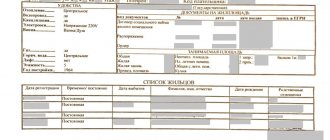In life, sometimes you may need to record a conversation on a voice recorder. Most often this concerns business conversations, but recordings of other types of communications may also be in demand - family, friendly, comradely, and so on. It would seem that it is enough to buy a voice recorder, hide it in a secluded place, and record the dialogue that interests us. But are such actions legal, is it possible to record a conversation without the consent of the interlocutor on a voice recorder, and is this not an invasion of privacy? We'll talk about this in our material.
Recording conversations without the consent of the interlocutor - what the law says
As you know, the ability to record a conversation on a voice recorder is directly regulated by the Constitution of the Russian Federation and a number of legislative acts.
Thus, Article 23 of the Constitution of the Russian Federation guarantees a person the right to privacy, personal secrets, the right to confidentiality of correspondence and telephone conversations.
Article 24 of the Constitution of the Russian Federation prohibits the collection, storage, distribution and use of information about the private life of a person without his consent.
Article 152 of the Civil Code of the Russian Federation repeats the norms of the Constitution, approving a ban on the collection, storage, use and dissemination of any information about the private life of a citizen without his permission. It is not a violation of the law to collect, store, use and disseminate data about a citizen’s private life in state or public interests. Or when the information has become publicly available or has already been disclosed by the citizen himself.
At the same time, the Code prohibits the publication of information concerning the place of residence or location of a person.
Article 137 of the Criminal Code introduces sanctions in the form of fines, correctional labor, arrest and other types of punishment for the illegal collection or dissemination of information about the private lives of persons that constitute their personal or family secrets, without their consent.
Article 138 of the Criminal Code punishes violation of the secrecy of negotiations, correspondence, and mail messages of citizens.
Article 63 of the Law “On Communications” guarantees the secrecy of correspondence, mail, telephone conversations and other types of messages on the territory of Russia.
The Law “On Information...” prohibits obtaining information about a person’s private life without his will.
The Law “On Operational-Investigative Activities” prohibits the use of means to secretly obtain information by unauthorized persons. However, persons with the appropriate rights (for example, an investigator) can record conversations of interest to them using a voice recorder.
As we can see, the legislation respects the right to privacy and confidentiality of correspondence, and prohibits the recording of conversations without the consent of the citizen. But what in reality?
This may help: how to listen to a telephone conversation that has already been made.
There is no reason to use a voice recorder
July 28, 2021 11:12 am
The court legalized the refusal of a lawyer to use an audio recording with references to the provisions of the Code of Criminal Procedure regulating the use of technical means by the investigator himself
According
to “AG”, the lawyer of the Administrative District of the Krasnodar Territory, Goar Galstyan, sent an appeal to the Southern District Military Court against the decision of the lower court, which found no violations in the actions of the investigator in refusing to use the audio recording to the defense lawyer with references to the norms of the Code of Criminal Procedure of the Russian Federation regulating the use of technical means by themselves investigator.
In a commentary to “AG”, lawyer Gohar Galstyan noted that she notified the investigator about the use of an audio recording in order for him to enter the initial data of the technical means into the protocol of an investigative or other action so that in the future, if necessary, the audio recording could be officially provided. The investigator forbade the use of a voice recorder
The investigator-criminalist of the military investigative department of the Investigative Committee of the Russian Federation for the Krasnodar garrison, senior lieutenant of justice Dmitry Kalmykov, is investigating a criminal case on charges of Sh. of committing crimes under paragraphs “a”, “c” of Part 2 of Art. 163, paragraph “a”, part 2, art. 127, part 3 art. 291, part 5 art. 33, paragraph “a”, part 3, art. 286 of the Criminal Code of the Russian Federation.
As Gohar Galstyan told AG, the investigator called Sh. and asked him to come. When asked whether the defender had been notified, Dmitry Kalmykov said that his presence was not necessary. The investigator invited the defendant to a psychologist, where he held an extra-procedural conversation in which he raised the question of confession.
Subsequently, on June 16, Gohar Galstyan notified the investigator that in order to provide qualified legal assistance, Sh. would use a voice recorder in investigative actions and other procedural actions in accordance with paragraph 6 of Part 3 of Art. 6 of the Law on Advocacy.
She noted that any opposition to a lawyer in using a voice recorder can be regarded as an abuse of power, since the current criminal procedure legislation, including the interrelated provisions of Part 2 of Art. 38, part 6 art. 164 and part 5 of Art. 166 of the Code of Criminal Procedure of the Russian Federation does not contain rules giving the investigator the authority to prohibit the use of technical means by a lawyer. “If you disagree with my actions related to the use of technical means to provide legal assistance to the client, you have the right to contact the Bar Association of the Krasnodar Territory,” the notice emphasizes.
As Gohar Galstyan reported, the investigator interrupted the proceedings to issue a decision to refuse the petition.
In the document, Dmitry Kalmykov indicated that, according to Part 6 of Art. 164 of the Code of Criminal Procedure of the Russian Federation, during investigative actions, technical means and methods of detecting, recording and seizing traces of a crime and material evidence may be used. Before the start of an investigative action, the investigator warns the persons participating in the investigative action about the use of technical means. According to Part 4 of Art. 189 of the Code of Criminal Procedure of the Russian Federation, on the initiative of the investigator or at the request of the interrogated person, photography, audio and (or) video recording, and filming may be carried out during the interrogation. According to clause 3, part 2, art. 38 of the Code of Criminal Procedure of the Russian Federation, the investigator is authorized to independently direct the course of the investigation, make decisions on investigative and other procedural actions, including decisions on the use of technical means.
Dmitry Kalmykov noted that from the analysis of these articles it follows that the use of technical means during investigative actions, including the use of audio and (or) video recordings, is the right and not the obligation of the investigator. He considered that there were no grounds for using a voice recorder and refused to satisfy the lawyer’s request.
Attempt to appeal the ban
Gohar Galstyan filed a complaint in accordance with Art. 125 of the Code of Criminal Procedure of the Russian Federation to the Krasnodar Garrison Military Court. She noted that, according to clause 3 of part 2 of art. 38 of the Code of Criminal Procedure of the Russian Federation, the investigator is authorized to independently direct the course of the investigation, make decisions on investigative and other procedural actions, with the exception of cases when, in accordance with the Code, obtaining a court decision or the consent of the head of the investigative body is required. “The indication in the resolution when referring to Article 38 of the Code of Criminal Procedure of the Russian Federation, namely that he is authorized to “make a decision on the use of technical means,” is the rule-making of the investigator, since this paragraph of Article 38 of the Code of Criminal Procedure of the Russian Federation does not contain such a provision,” she noted advocate.
She pointed out that the conclusion that the use of technical means during investigative actions, including the use of audio and (or) video recordings, is the right, and not the responsibility of the investigator, is untenable, since he, freely interpreting the stated “notification” by petition , refuses to satisfy requests for audio recording by the investigator himself. However, the notice does not contain such requirements.
Gohar Galstyan noted that the above provisions of the law regulate the powers and actions of the investigator during investigative actions, and not the powers of the lawyer when providing defense in a criminal case, which are established by other norms of criminal procedure legislation. “The specified norms regulating the powers of the defense attorney are based on the constitutional guarantee of the protection by everyone of their rights and freedoms by all means not prohibited by law (Part 2 of Article 45 of the Constitution of the Russian Federation), while the powers of the authority subject of criminal proceedings, including the investigator , are strictly limited by the permissions and prohibitions contained in the relevant provisions of the law,” she emphasized.
The lawyer indicated that the analysis of Parts 1.1 and 3 of Art. 70, part 6 art. 164, part 3 art. 164.1, part 2 and 5 art. 166, part 4 art. 189 of the Code of Criminal Procedure, which regulates the use of technical means in investigative actions, allows us to assert that these norms establish the procedure for the use of technical means by the investigator. At the same time, there are features and conditions for the use of technical means by the investigator: 1) before the start of an investigative action in which the investigator intends to use a technical means, he is obliged to warn the persons participating in the investigative action about this; 2) the protocol of the investigative action must indicate the use of technical means by the investigator; 3) materials obtained as a result of the investigator’s use of technical means during investigative actions (electronic storage media) must be stored in the criminal case.
“At the same time, the above norms, either individually or collectively, do not contain provisions granting the investigator the authority to authorize or prohibit other participants in the investigative action from using technical means,” noted Gohar Galstyan.
The lawyer drew attention to the fact that in violation of Part 2 of Art. 16 of the Code of Criminal Procedure of the Russian Federation, Dmitry Kalmykov, by prohibiting the defense attorney from using a voice recorder during investigative actions, limited the client’s right to protect his rights by all methods and means not prohibited by law.
Gohar Galstyan noted that the defense attorney has two ways to ensure the use of technical means during investigative actions:
1. Submitting a corresponding petition to the investigator, the satisfaction of which will allow not only to record the fact, progress and results of the investigative action, but also to obtain additional objective evidence in the form of an appendix to the protocol of the investigative action.
2. Independent recording of the fact, progress and results of the investigative action, which does not guarantee the inclusion of an electronic medium in the materials of the criminal case, but allows the use of audio recording data in the preparation of various acts of procedural response and (or) when proving the fact of an offense against a defense lawyer and (or) his principal. At the same time, the use of technical means by the investigator during an investigative action does not deprive the defender of the right to independently and simultaneously use his own technical means, including making audio recordings.
The lawyer emphasized that she was forced to use technical means in order to objectively record the facts, progress and results of the investigative action and, if necessary, use the existing audio recording in the future.
She asked the court to recognize the actions of the investigator in prohibiting the use of technical means as illegal.
The court found the investigator's actions legal
On June 22, the Krasnodar Garrison Military Court indicated that the requirements presented by the investigator within the limits of his powers are mandatory for fulfillment by everyone to whom they are addressed (Part 4 of Article 21 of the Code of Criminal Procedure of the Russian Federation). According to Part 4 of Art. 189 of the Code of Criminal Procedure of the Russian Federation, an audio recording of an interrogation can be carried out at the initiative of the investigator or at the request of the person being interrogated, but is not mandatory.
He also referred to the Constitutional Court Resolution No. 13-P of June 29, 2004 and noted that, in accordance with the legal position of the Constitutional Court, the use of means of recording during interrogation is the exclusive prerogative of the investigator (interrogator) conducting the preliminary investigation, by virtue of paragraph. 3 hours 2 tbsp. 38 Code of Criminal Procedure of the Russian Federation.
The first instance indicated that on June 16, 2021, Gohar Galstyan submitted a petition (notification) to the investigator. Dmitry Kalmykov resolved the petition filed by the defense attorney on the day of his application, issued a reasoned and justified decision to refuse it, and handed it to the defense attorney on the same day.
The court noted that neither the Law on the Bar nor the Criminal Procedure Code contain the authority of a lawyer to use means of restraint during interrogation independently, without filing a corresponding petition with the investigator and obtaining the appropriate permission from the investigator conducting the said interrogation and conducting the preliminary investigation.
According to the court, the investigator's consideration of the defense lawyer's notification in the manner prescribed for resolving petitions does not violate the rights and legitimate interests of the accused Sh. “The defense attorney’s own analysis of the current legislation presented in the complaint and in court about the possibility of the defense attorney independently, without the permission of the investigator carrying out investigative actions with the participation of the accused, to use technical means of recording during interrogation does not follow from the powers of the defense attorney, defined in Art. 53 of the Code of Criminal Procedure of the Russian Federation,” he calculated.
Thus, the court came to the conclusion that the appealed decision of the investigator does not cause damage to the constitutional rights and freedoms of participants in criminal proceedings and does not impede citizens’ access to justice, and does not violate the rights of the accused to defense.
Appeal and appeal to the Administrative Office of the Krasnodar Territory
Gohar Galstyan filed an appeal with the Southern District Military Court. She noted that the court, refusing to satisfy the complaint, was guided by the provisions of Art. 21 of the Code of Criminal Procedure of the Russian Federation, which do not apply to the defense lawyer, since he is neither an official nor a representative of the body carrying out criminal prosecution, and has a completely different function from the prosecutor, investigator and interrogator as a participant in criminal proceedings. In this regard, the conclusions of the court of first instance that “the requirements presented by the investigator within the limits of his powers are obligatory for fulfillment by everyone to whom they are addressed,” based on the provisions of Art. 21 of the Code of Criminal Procedure of the Russian Federation, illegal.
The lawyer drew attention to the fact that the provisions of Part 4 of Art. 189 of the Code of Criminal Procedure of the Russian Federation are also not rules that regulate the powers of the defense attorney when protecting the rights and interests of the principal.
Gohar Galstyan noted that the court’s conclusions that the use of restraints during interrogation is the exclusive prerogative of the investigator (inquirer) conducting the preliminary investigation are not based on the provisions of the current criminal procedural legislation and the legal position of the Constitutional Court, to which the court referred. She drew attention to the fact that Art. 38 Code of Criminal Procedure of the Russian Federation and Art. 189 of the Code of Criminal Procedure of the Russian Federation regulates the powers and actions of the investigator during investigative actions, and not the powers of the lawyer when carrying out his defense. The lawyer referred to the Constitutional Court Resolution No. 13-P of June 29, 2004, where the Court noted that the priority of the Code of Criminal Procedure of the Russian Federation over other ordinary federal laws is not unconditional, but is limited by the scope of the special subject of regulation.
The defender indicated that in order to protect the rights and interests of Sh., guided by clause 7, part 3, art. 6 of the Law on Advocacy, clause 11, part 1, art. 53 of the Code of Criminal Procedure, notified the investigator in writing about the use of technical means, that is, officially notified, since no provision of the law prohibits the implementation of these actions and does not impose the obligation to obtain the consent of persons carrying out investigative and procedural actions for the use of technical means. Meanwhile, Gohar Galstyan noted, during the trial the presiding judge discredited her, saying that with these actions she was satisfying her personal ambitions.
The lawyer indicated that the court of first instance ignored the generally binding clarifications of the Constitutional Court of the Russian Federation, the inclusion of which she requested. Thus, based on the position on the priority of a “special” law over a “general” one, the Constitutional Court in its Ruling of November 8, 2005 No. 439-O noted that the priority of the Criminal Procedure Code over other federal laws is not unconditional. In particular, it may be limited by the rules that in the event of a conflict between different laws of equal legal force, the subsequent law and the law that is specifically designed to regulate the relevant relations take precedence. Moreover, the unconditional priority of the norms of criminal procedure legislation cannot be discussed in cases where other legislative acts (in addition to the Criminal Procedure Code, which establishes the general rules of criminal proceedings) establish additional guarantees of the rights and legitimate interests of certain categories of persons, stipulated in including their special legal status. Resolution in the process of law enforcement of conflicts between various legal acts should be carried out based on which of these acts provides for a greater volume of rights and freedoms of citizens and establishes their broader guarantees.
Gohar Galstyan asked the appeal to overturn the decision of the first instance, to recognize the actions of the investigator as illegal and to oblige him to eliminate the violations committed.
The defender named the alleged reasons for the refusal to satisfy the complaint
In a commentary to AG, Gohar Galstyan noted that the client wrote a petition to carry out all investigative actions with the participation of a defense lawyer. Since the investigator refused to accept it, it was submitted through the department office. Due to the length of time it took to consider the application, the examination was carried out without a lawyer.
“The investigator asked Sh. if he would confess, to which he replied that he had nothing to confess. As soon as the principal informed me about this conversation, we wrote a complaint addressed to the head of the investigator outlining these circumstances. Of course, we were told that there was no conversation. It was the extra-procedural conversation that prompted me to come with a voice recorder,” the lawyer said.
The defender explained that she notified the investigator about the use of the audio recording in order for him to enter the initial data of the technical device into the protocol of the investigative or other action so that in the future, if necessary, the audio recording could be officially provided.
Gohar Galstyan also said that the court hearing was attended by a prosecutor, an investigator and a deputy head of a department of the investigative body, who in his speech noted that he had come to reflect the position of the investigative body. “I filed a petition that due to the fact that my professional rights are being violated, I ask for time so that I can notify the Bar Association of the Krasnodar Territory and the Commission for the Protection of Professional Rights of Lawyers, to which the judge asked my client whether he had entered into an agreement with the entire Chamber of Lawyers for the provision of legal assistance. We explained that this is not the case and that this is not necessary. All explanations were refuted,” the lawyer emphasized.
The defender suggested that the judge’s incorrect behavior and refusal to satisfy the complaint may be due to the fact that earlier, based on her complaint, a deliberately illegal judicial act issued by the same judge was overturned.
Contacting the Bar Association
In parallel with the appeal, on June 30, Gohar Galstyan addressed the Bar Association of the Krasnodar Territory with a request to provide clarification on the current situation and provide the necessary assistance in order to eliminate the violations of her professional rights.
Alexey Ivanov, a member of the Commission for the Protection of Professional Rights of Lawyers of the Krasnodar Territory Administration, told AG that the ban on audio recording is an absolute violation of the professional rights of a lawyer. He added that the Commission's conclusion on this situation will be prepared this week.
Marina Nagornaya
SharePrint Direct link to the material:
Share
Using a voice recorder without the consent of the interlocutor - law enforcement practice
As you know, the letter of the law should not always be taken literally. Thus, law enforcement agencies and courts turn a blind eye to the secret recording of conversations without notifying your interlocutor regarding everyday issues (with your wife or husband, friend, acquaintance, and so on). You can use these conversations for your personal purposes without publishing them publicly.
But if you use a voice recorder to record a conversation between the right person and a third party, then this is punishable, and you will face sanctions under Article 138 of the Criminal Code of the Russian Federation.
You can record on a voice recorder a conversation with any government official who is performing his duties in a public place, as well as a conversation with your boss and colleagues relating to business (provided that such data is not a commercial secret). The court may qualify such recordings as admissible evidence and use them in court proceedings.
Also, the Supreme Court of the Russian Federation in case No. 35-КГ16-18 of 12/06/2016 recognized as admissible evidence a recording of a conversation recorded without notifying the interlocutor, but confirming the contractual relationship between the parties.
This will come in handy: checking your microphone online with listening.
How to prove illegal recording of a conversation
To prove that the recording was made illegally, it is necessary to clarify:
- that the information presented in the recording is personal in nature;
- a list of persons who have the right to make such records;
- recording conditions and other circumstances.
Russian courts have an ambiguous attitude towards voice recordings. This is explained precisely by the specified factors that determine the legality of such procedures. In particular, it is often difficult for judges to establish that information contained in a recording is personal.
Recording a conversation without the interlocutor’s permission – let’s summarize
Thus, we can conclude that we can record our conversations with our interlocutor on a voice recorder and use them for personal needs. If you are going to communicate on rather personal topics, you should warn your interlocutor about recording the conversation on a voice recorder. At the same time, it would be nice if you had another witness to this conversation, confirming the preliminary agreement to record.
You also have the right to distribute such a recording if the interlocutor himself has previously made it available, or if it concerns the public sphere.
If you have recorded any personal information without the consent of your interlocutor and are preparing to use it in court proceedings, be prepared for the fact that the court may not recognize such a recording as admissible evidence. Nowadays, when assessing a recording of a conversation, courts can act differently and take into account the accompanying circumstances. And if previously such secret recordings were recognized as unacceptable evidence, then after the decision of the highest court - the Supreme Court in case No. 35-КГ16-18 of 12/06/2016, the general legal situation has changed. And it is quite possible that the audio recording of the conversation you made may be allowed for use in court.
The crux of the matter, the courts
In 2011, a married couple at that time borrowed 1,500,000 rubles from an individual for general needs. The money was provided at 20% per annum for a period of 3 years. After the expiration of the specified period, they were not returned, and the creditor went to court.
At the end of 2015, the court of first instance satisfied the plaintiff’s demands to collect 1,524,237 rubles 50 kopecks from each debtor. However, the regional court overturned this decision, and according to a new one that subsequently appeared, the entire amount of 3,048,475 rubles falls on the shoulders of only one defendant, who acted as the borrower under the receipt. The claims against the second defendant were denied.
The plaintiff was not satisfied with this decision, since the chances of receiving the debt as part of enforcement proceedings against one borrower were extremely small. Therefore, they were sent a demand to cancel this decision - the debt was taken out for general needs, and enforcement proceedings should be initiated against both debtors.
As evidence, the plaintiff provided two recordings of conversations between him and the two defendants, confirming that the funds were taken for common needs, and both spouses agreed to the terms of their receipt. For the reasons stated at the beginning of the publication, the court did not accept the evidence. The case eventually ended up in the Supreme Court.
How to avoid breaking laws?
Based on the above, you can record telephone conversations in your organization if you consider the following important points:
- you must publicly document the purposes of the recording (processing) and justify the legitimate interest and need for the recording;
- ensure the openness of the recording, that is, notify the participants in the conversation about it;
- the information you receive while recording telephone conversations should not be distributed to third parties;
- the amount of personal data obtained during a telephone conversation must correspond to the purpose of the recording;
- provide the conversation participant (client) with the right to object to the recording;
- take into account the balance of interests.
This information is often communicated to employees through company information portals or documented in job descriptions, which the employee must sign. Third parties mean everyone except the employee whose conversations were recorded and the persons who recorded and listened to the conversations. For clients, before starting a conversation, a verbal notification is used using a voice greeting that all telephone conversations are being recorded. For example:
- "Hello! You called the company... To improve service quality, your conversation will be recorded. The conversation is recorded on the basis of legitimate interest.
- "Hello! You called the company... Please note that the actual conversation will be recorded. The processing of personal data obtained during a conversation is based on fair consideration of mutual legitimate interests.”
- Malko A.V. Problems of legitimate interests // Problems of the theory of state and law / ed. M.N. Marchenko. M., 2002. P. 375.
Can I record a phone call or conversation if I do not have the consent of the other party?
That being said, it is almost always illegal to record a phone call or private conversation in which you do not have consent from at least one party.
In addition, Russian law does not allow a recording device to be secretly placed on a person or phone, in a home, office or restaurant in order to secretly record a conversation between two people who have not given consent.
Note: Most other countries also prohibit the disclosure of the contents of an illegally intercepted telephone call.
What if you are recording the actions of police or other government officials?
Special rules apply when recording police officers or other government officials. You may have a constitutional right to openly record the activities of police and other officials in public, as long as you do not interfere with those activities or violate generally applicable laws.
However, conversations that have been retained by law enforcement agencies who seek an extrajudicial "confession" of an accused through deception and a position of superiority take a different approach. In the latter case, the doctrine of the European Court of Human Rights encourages analysis of the nature and extent of coercion used to obtain evidence for the investigation and punishment of the crime in question. It is in this case that a constitutional right against the accused may be violated, which will lead to the invalidity of evidence.
Recording purposes
Nowadays, most organizations use call recording capabilities. There are two ways to record conversations: explicit and hidden. The first method involves recording telephone conversations on large networks of companies engaged in providing various types of services to the public (cellular operators, banks, retail chains, etc.). One of the mandatory conditions for conducting an open recording is informing the client before the conversation begins. This is a completely legal way to exercise the right to record a conversation, when both parties to the conversation know that the entire conversation will be recorded. Most often, recording telephone conversations with clients is used for the following purposes:
- recording orders placed by telephone or clarifying information on orders;
- control of personnel performance and quality of service;
- recording the content of important negotiations;
- suppression of telephone hooliganism, etc.
Speaking about hidden recording of telephone conversations, the initiators of such actions are most often security services and individual entrepreneurs. This recording method is used for the following purposes:
- analysis of the productivity of working time;
- minimizing communication costs;
- monitoring employee loyalty;
- promoting non-disclosure of trade secrets.
The issue of the legality of maintaining hidden recordings must be considered both in relation to employees of the organization and in relation to clients. Such actions are illegal, and when recording a telephone conversation, the injured party is an employee of the organization. The management of the company, namely the director, should be held responsible for this act, since on his initiative there was “interference in the personal life of an employee.”
What information cannot be disclosed without the consent of the owner
Recording any conversations between two or more interlocutors using various means of audio or video recording is not expressly prohibited anywhere in the legislative acts of Russia.
In the main law of the country - in the Constitution of the Russian Federation in Art. 23, these norms are partially defined, as in Art. 138 of the Criminal Code of the Russian Federation, which only talks about the inviolability of a citizen’s private life. Those. secrecy is implied in his correspondence and conversations. The concept of what kind of information is prohibited from being collected, recorded by technical means of audio recording and video recording using various digital reading devices has been more specified. Such information is included on the basis of the provisions and norms of the Federal Law of July 27, 2006 No. 149-FZ “On Information, Information Technologies and Information Protection” (Clause 7, Article 3, Part 3, Article 6, Parts 4, 8 and 9 art. 9), three main categories of data:
- Category one. This includes information that constitutes a trade secret. However, there is one significant amendment to this situation. Thus, if during commercial negotiations between counterparties a recording was made, including the official minutes of a meeting of the board of directors or shareholders, then such a recording will not be considered a violation within the meaning of the law. But as soon as this information is published in the media, in other open sources without permission, or it is transferred to business competitors, then this fact will be considered a violation of the law.
- Category two. Information relating to private or personal life. This concept will include a wide range of information, and most often the boundaries of personal and public are very blurred, and it is not possible to accurately determine the boundaries of what is permitted.
- Category three. Information that constitutes personal or personal data. As a rule, such data includes the information that is provided and entered in official institutions - in banks, when applying for a job (personal data), when a citizen provides his passport and other personal data. To a large extent, personal data also includes information such as a person’s medical history. This is the category of information that, if published or unauthorized access, can cause certain harm to a person or his loved ones.
How legal is it to record a secret conversation?
Recording secret conversations is not a criminal offense and is not prohibited as long as the recording is for personal use. You will not have to obtain consent or inform any other person for your use.
Important: However, the situation changes if the question is about compensation for damage or if the recordings were transferred to the court without the consent of all participants. Even worse, if the recording is sold to third parties or published without the consent of everyone involved in that recording, then this could be considered a criminal offense.
By the way, journalists often record secret conversations, which they then publish without any legal problems. But this is because they either obtain consent or argue that the recordings are in the public interest.
Interestingly, the existence of a contract allows a party to record negotiations with the other party without warning.
Is it legal to wiretap employees' conversations?
In existing business practice, recording conversations between company employees and its clients is often used.
Such recording of telephone conversations is considered lawful if an appropriate warning or order is given in advance. There is also one significant legal point here. It is due to the fact that with this kind of recording of telephone conversations, the consent of the employee of the company or organization must be obtained for the processing of their personal data.
This is regulated by law even if such recording of information and its subsequent processing is carried out in order to control the quantity and quality of work performed by the relevant company personnel (See Article 6 of the Law on Personal Data, Article 86 of the Labor Code of the Russian Federation).
For practical reasons, owners of businesses or companies that practice such HR practices should take the following into account. Since in fact the recording of telephone conversations between company employees and its clients may still contain personal data (sometimes to a greater extent) than is necessary to achieve this goal, it is advisable to formally stipulate the rules for recording telephone conversations between employees and clients (other persons).
This can be done in the form of an official written order or in the form of a separate order for personnel, i.e. in an internal document of the organization, familiarizing employees with them against personal signature.










